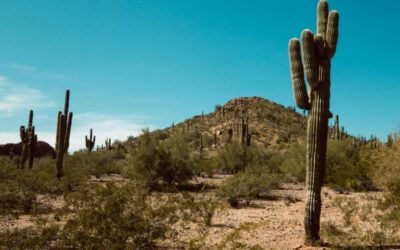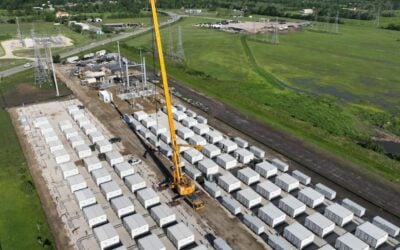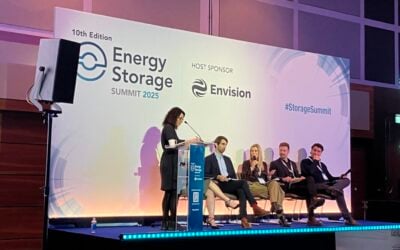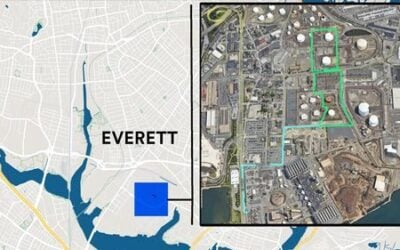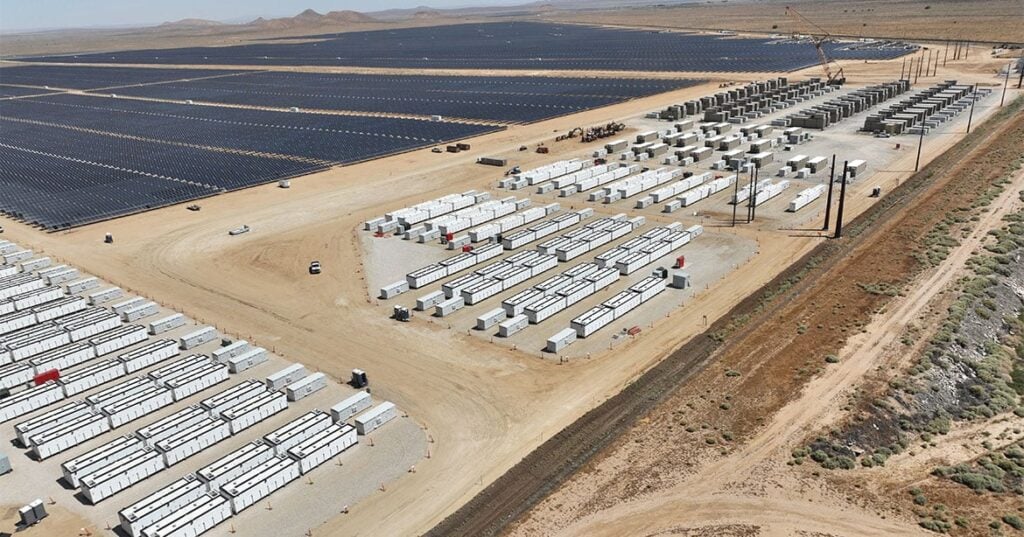
Following recent progress for long-duration energy storage (LDES) projects in California, independent power producer (IPP) Terra-Gen has entered the fray with its huge 8GWh hybrid BESS project in the Golden State.
After determining that this particular development could have a significant environmental impact on the surrounding area, Kern County’s Planning and Natural Resources Department got the ball rolling on the California Environmental Quality Act (CEQA) approvals process this week.
In its role as lead agency for the process, the department published an initial study (IS), a Notice of Preparation (NoP) and outlined its intentions to carry out a full environmental impact review (EIR) of the project.
1GW long-duration lithium-ion BESS
As outlined within Kern County’s recent CEQA filings, Terra-Gen’s Discovery Solar PV and Storage project will comprise a 1.4GW solar farm paired with a 1GW/8GWh BESS located across approximately 7,700 acres of land in the Southeastern portion of Kern County.
Try Premium for just $1
- Full premium access for the first month at only $1
- Converts to an annual rate after 30 days unless cancelled
- Cancel anytime during the trial period
Premium Benefits
- Expert industry analysis and interviews
- Digital access to PV Tech Power journal
- Exclusive event discounts
Or get the full Premium subscription right away
Or continue reading this article for free
The CEQA filings don’t specifically name a BESS supplier for the project, however, technical drawings of LG Energy Solution’s JF2 energy storage can be found within the document’s extensive list of figures.
Although this doesn’t necessarily confirm LG as the supplier for Terra-Gen’s Discovery project, the pair have a history of working together and last November announced a four-year 8GWh BESS supply deal.
Lithium iron phosphate (LFP) battery storage systems with longer discharge durations, such as LG’s JF2 unit, have become a popular technology choice for the developers of LDES projects in the US.
Just last week, Energy-Storage.news reported on the news that IPP Aypa Power had struck up a deal to supply power to California’s largest utility from a lithium-ion based battery storage project with an eight-hour discharge duration.
The CEQA documents note that the proposed project site is in an area of “low population density” and crossed by the California High Speed Rail Authority’s (CHSRA) Bakersfield to Palmdale section of its high-speed train corridor.
As reported by Energy-Storage.news earlier this year, the rail authority has also commenced the CEQA approvals process for a solar and BESS project that will serve as a primary source of power for the Merced to Bakersfield section of the high speed rail project.
Terra-Gen is developing the project under its “Discovery Solar & Storage, LLC” business subsidiary which it first registered with the California Secretary of State’s (SoS’) Office back in July 2023. Prior to being renamed in September 2023, the subsidiary was first known as “Alta Solar & Storage, LLC.”
Officials preparing EIR for another solar-plus-storage project at SCE substation
Terra-Gen intends to utilise existing transmission infrastructure in connecting its Discovery project to the electricity grid via Southern California Edison’s (SCE’s) Windhub substation, which was built to facilitate interconnection for the developer’s flagship Edwards & Sanborn Solar + Energy Storage hybrid complex.
Despite being cleared for commercial operations at the beginning of 2024, this Terra-Gen solar and storage facility still holds the highly coveted accolade of the world’s largest BESS, at 3,287MWh, alongside 875MWdc of solar PV.
Within the recent CEQA filings, Kern County officials revealed that they were in the process of preparing an EIR for another solar and storage project that will also utilise this transmission infrastructure to connect to the California Independent System Operator (CAISO) grid.
Referred to as the Galaxy Solar PV and Storage project, the filings reveal this second development and Terra-Gen’s Discovery project “are expected to have different offtakers under unique power purchase agreements (PPAs) and to have separate interconnection agreements.”
Additional information on the Galaxy project, such as the project owner, isn’t provided within the filings. However, it’s worth noting that Terra-Gen has incorporated a business subsidiary with the California SoS called “Galaxy Solar Storage, LLC.”
Terra-Gen expects construction of its Discovery project to take approximately 34 months to complete and will commence following receipt of all permits and agency approvals.
Along with obtaining CEQA approval, Terra-Gen also requires concurrent County approval of four zone changes, conditional use permits (CUPs), general plan amendments and zone variance changes in order to commence construction of the development.
Although the CEQA documents don’t provide an estimated completion date, Kern County officials expect the project to contribute to California State 2030 renewable energy mandates.
State or locally-run approvals process
Instead of a locally administered environmental review and permitting process, an increasing number of BESS developers are choosing to obtain approval via the California Energy Commission (CEC) opt-in certification process.
Although the opt-in certification includes public consultation, the final approval decision lies in the hands of the CEC in its role as lead CEQA agency responsible for administering the process.
Once the CEC deems a developer’s application complete, it has 270 days to complete its assessment before deciding to approve or deny the project.
With the opt-in certification process having been introduced in 2022, only two projects incorporating BESS have made it through to the final CEC assessment stage.
The first of these proposals, known as the Darden Clean Energy Project (DCEP), is under development by Intersect Power and in June of this year became the first to be approved by the CEC via this alternative permitting process.
The CEC is also currently assessing Engie’s Compass Energy Storage proposal and has until January 25 2026 to issue a final decision.

